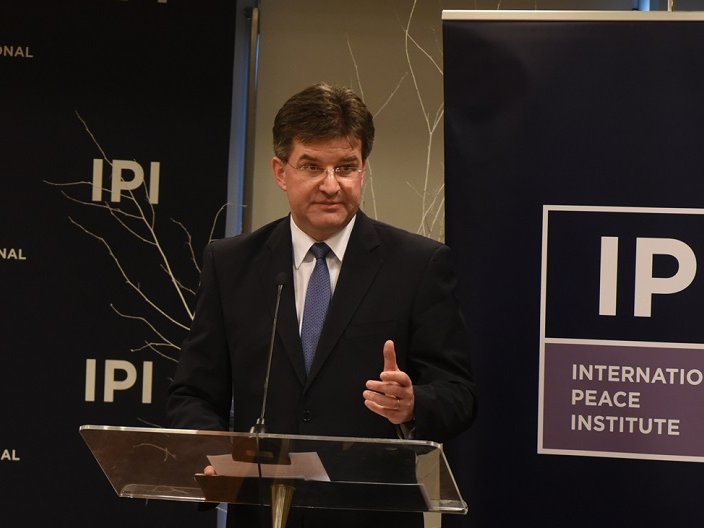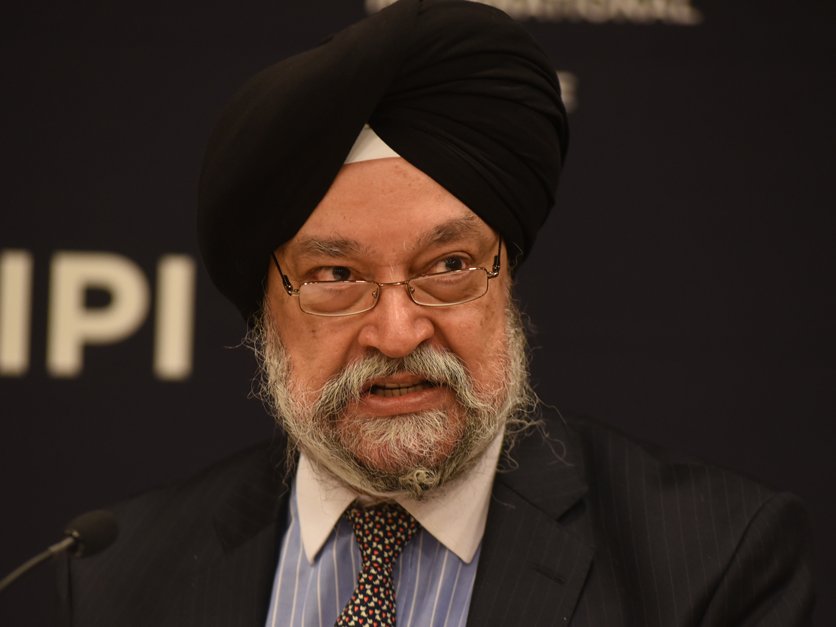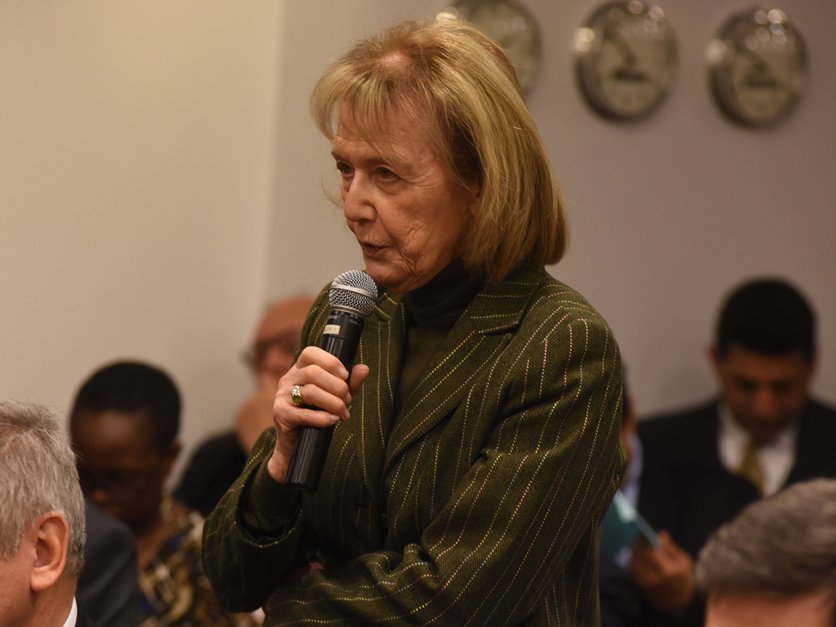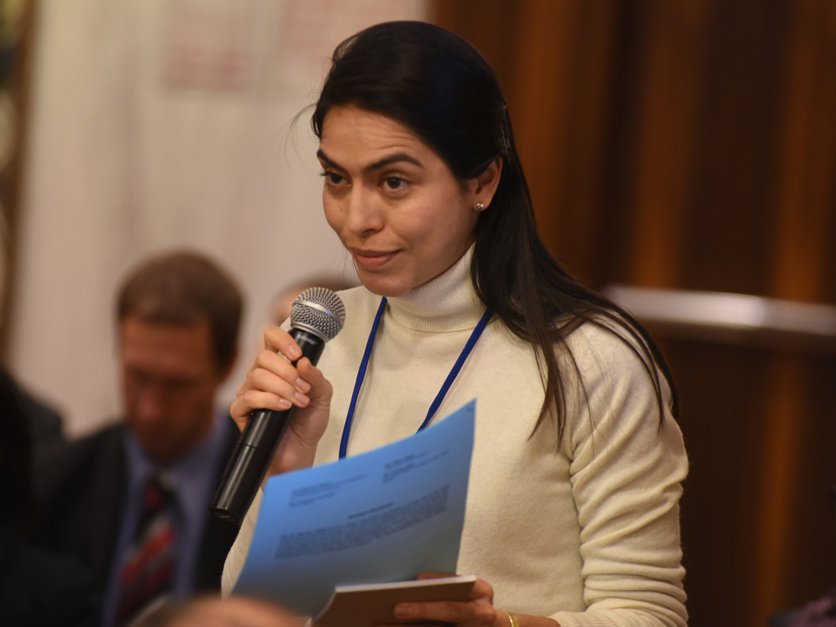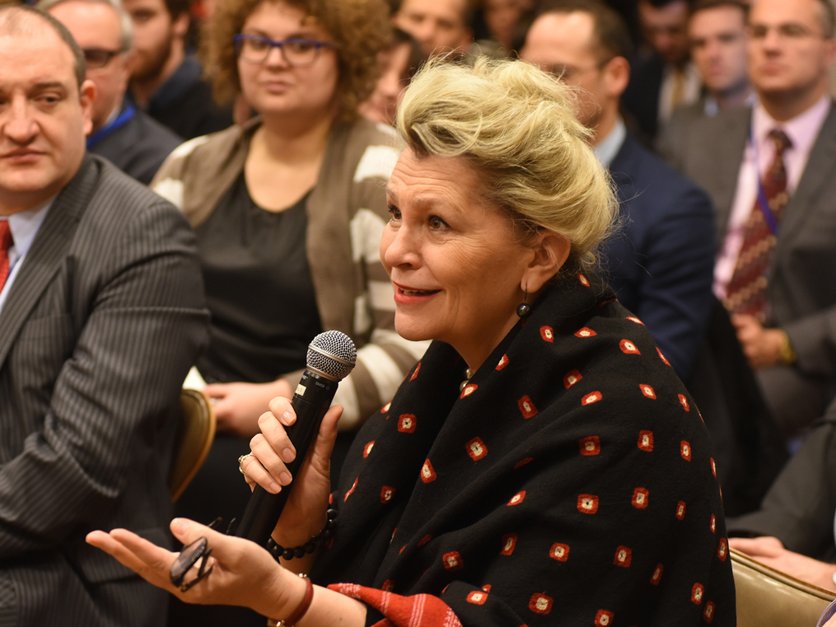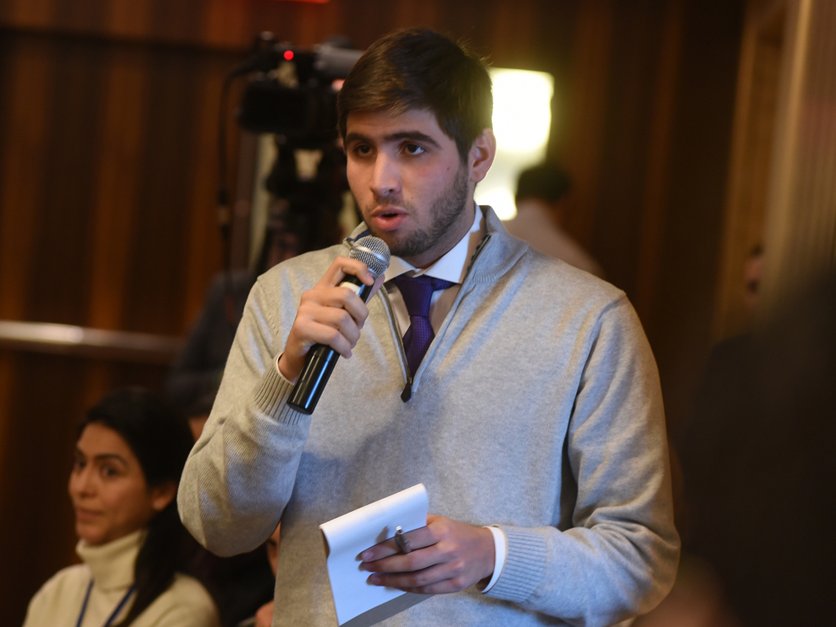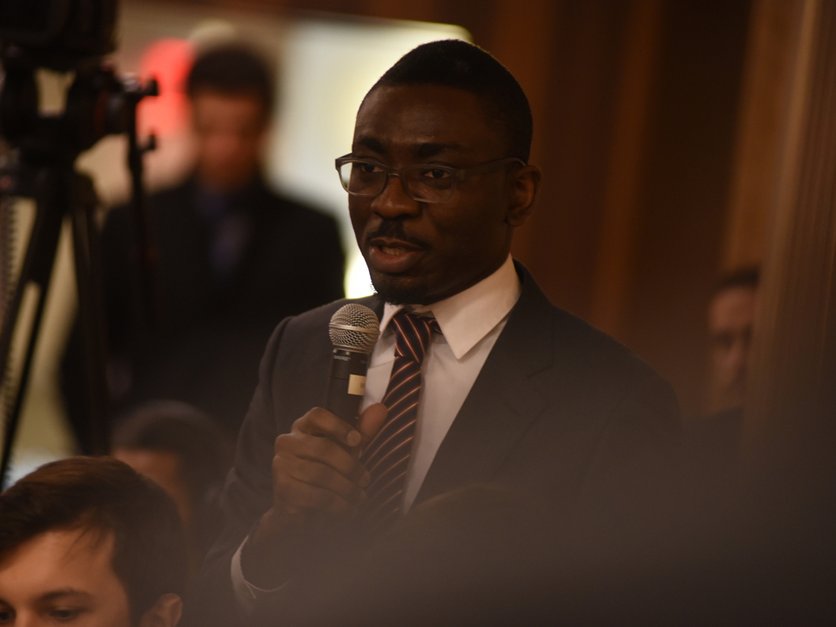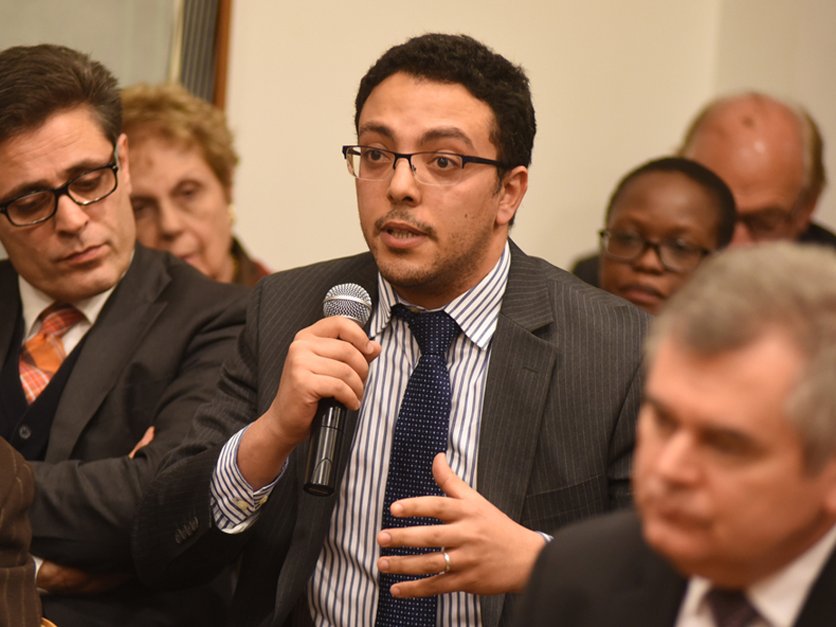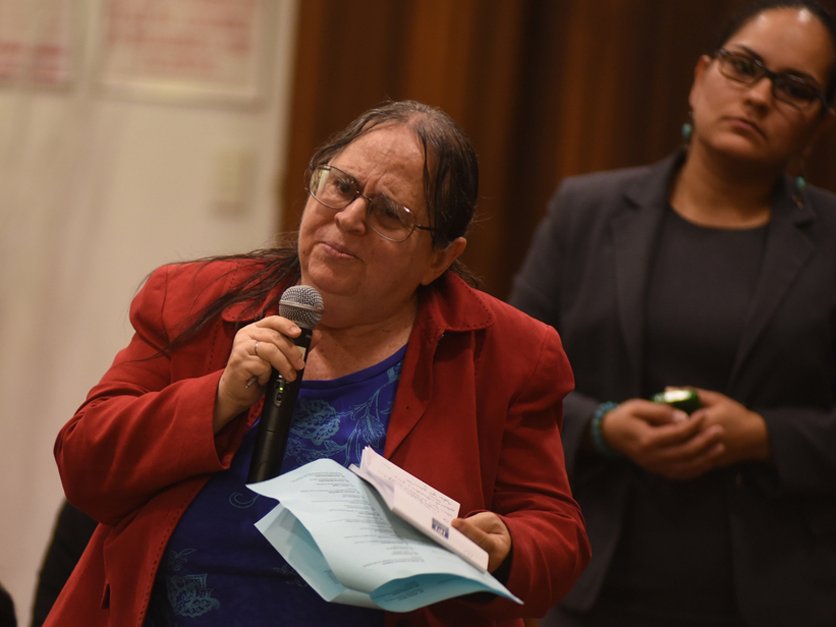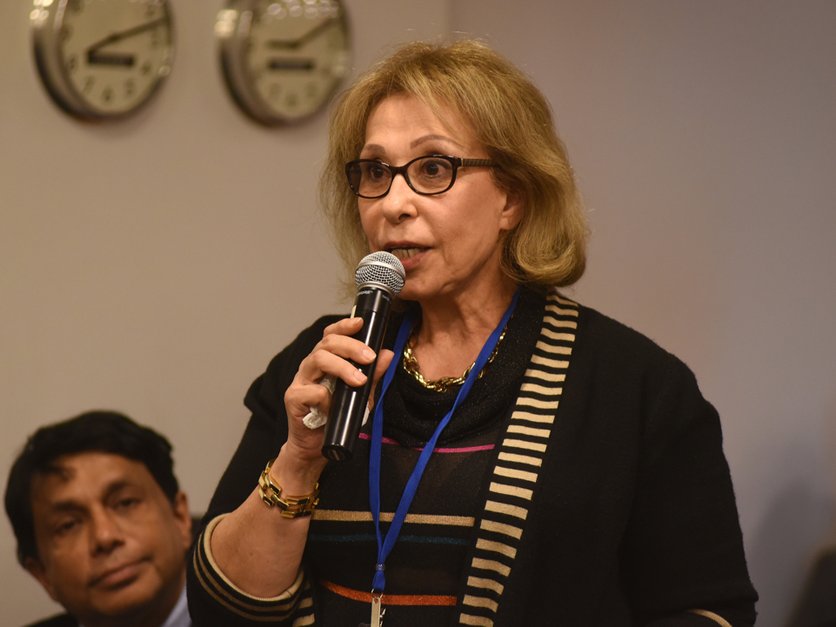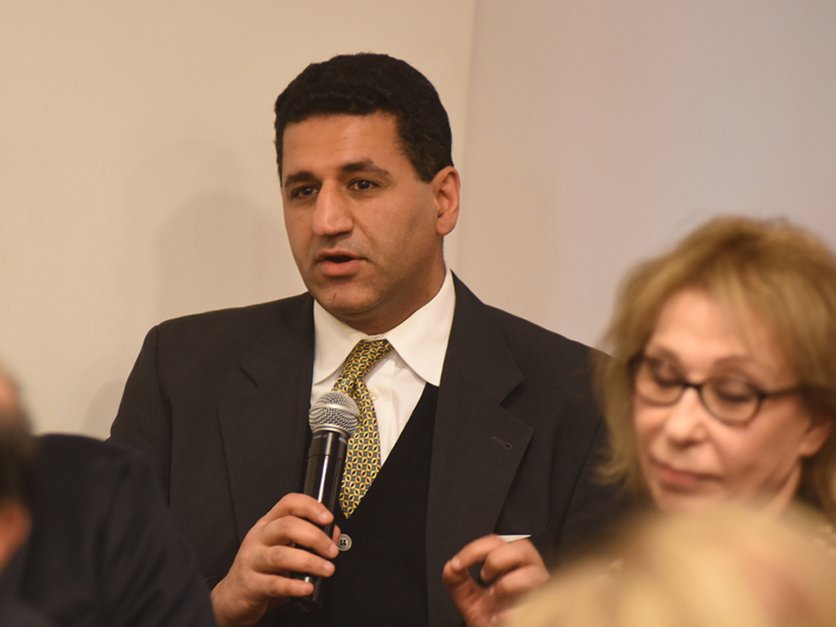Sharing his views on topics ranging from the crisis in Ukraine and the role of women in peace processes to the changing role of the UN, Foreign Minister Miroslav Lajčák of Slovakia said that the key ingredient to a successful multilateralism is “the ability to listen to each other, the kind of listening when you understand even if you might disagree.”
Mr. Lajčák was speaking to an IPI audience on February 13th on the topic of “The United Nations in an Era of Uncertainty: Reinvesting in Multilateralism,” an event co-organized with the Permanent Mission of the Slovak Republic to the United Nations. During his remarks, the foreign minister, and deputy prime minister, urged the international community to renew its commitment to the multilateral institutions embodied in the UN and its charter.
“The ability to listen is what I mean by reinvesting in multilateralism,” Mr. Lajčák declared. “The kind of listening that produces comprehension, aids tolerance, and leads to agreement.”
The event was moderated by IPI’s Vice President Hardeep Puri, who is also the secretary-general of the Independent Commission on Multilateralism (ICM). Housed at IPI, the ICM is a newly launched initiative that over the next two years will offer recommendations aimed at strengthening the multilateral system.
In his remarks, Mr. Lajčák noted how recent events in Ukraine and the growing threat of global terrorism are the result of the failure of the parties involved to truly listen to each other. “We are sometimes too quick to jump into military solutions, and, more often than not, without thinking through about the consequences,” he said. The parties should realize instead that the only clear solution is a political one, he continued.
Discussing the Ukraine crisis in details—Slovakia shares a 98 kilometer-border with the war-torn country—the foreign minister acknowledged that the events there have changed the post-Cold War order, even if it’s still unclear how. “Ukraine will be different, Russia will be different, our relationship with Russia will be different,” Mr. Lajčák said.
The central government and Russia-backed separatists are currently embroiled in a violent standoff over control of eastern Ukraine, a conflict which over the last 10 months has killed more than 5,000 people according to UN estimates. Russia is suspected of sending troops and military hardware across the border, further destabilizing the tenuous situation, something Moscow denies.
In September last year, the parties agreed to a cease-fire, only to see it breached multiple times over the following months. On February 12th, the governments of France, Germany, Ukraine, and Russia managed to broker a second cease-fire agreement in the Belarusian capital of Minsk, which, after entering into force on February 15th, is also now in dispute.
Nevertheless, Mr. Lajčák said the Minsk deal is a sign of a new momentum and that his government will lend its full support to its implementation, hoping to “give peace a chance.”
Sharing his views on the unity of the transatlantic community over how to deal with the crisis—some US legislators have suggested providing lethal aid to Ukraine, an idea opposed by most European governments—Mr. Lajčák acknowledged that, given the size of the problem, differing views are only to be expected.
“Unity doesn’t mean uniformity of views,” he argued. “[Instead] there would really be a rift in the moment when some of us promote a peaceful solution while others actually deliver weapons to Ukraine. That would be a big problem.”
The multilateral system is where solutions to such crises should be found, Mr. Lajčák pointed out.
That said, the current system is under stress and may be in need of serious reform, a point emphasized by Mr. Puri. “We need to try and improve the system through such tweaking or through such reform as is acceptable,” he said. “This will enhance the value of the system and make it more fit for purpose.”
Efforts to better include women in peace processes is currently one such effort and is embodied by global attempts to promote the implementation of UN Security Council Resolution 1325 on Women, Peace, and Security. “Whenever you involve women in mediation, you’re doing much better,” Mr. Puri said.
Both Mr. Lajčák and Mr. Puri ultimately noted that all reform attempts and mediation efforts—whether they refer to cease-fire agreements or enhancing the role of women in peace processes—boil down to whether diplomats and stakeholders can listen to each other.
“The ability to listen is the basis for a more meaningful multilateralism… and the only universal approach is the multilateral approach embodied in the United Nations,” Mr. Puri said.

